firstamendment
Latest
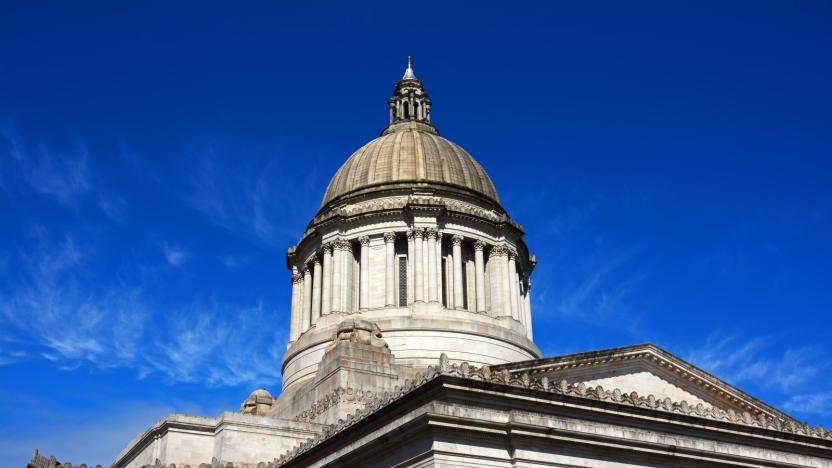
Judge says Washington state cyberstalking law violates free speech
Washington was one of the first states to fight cyberstalking through legislation, but it may have to rethink its approach. A federal judge has blocked the state's 2004 law after ruling that a key provision violated First Amendment protections for free speech due to vague terms. Its prohibitions against speech meant to "harass, intimidate, torment or embarrass" weren't clearly defined, according to the judge, and effectively criminalized a "large range" of language guarded under the Constitution. You could theoretically face legal action just by criticizing a public figure.

Donald Trump really wants to be allowed to block people on Twitter
If there's one thing President Donald Trump has made clear during his time in office so far, it's that he's a big fan of Twitter. And that includes -- as recent legal battles demonstrate -- blocking users that disagree with his views. And even though last month a federal judge ruled that doing this constituted a violation of the First Amendment, it seems it's a pretty important feature for Trump, as the US Justice Department now says it will appeal that ruling.
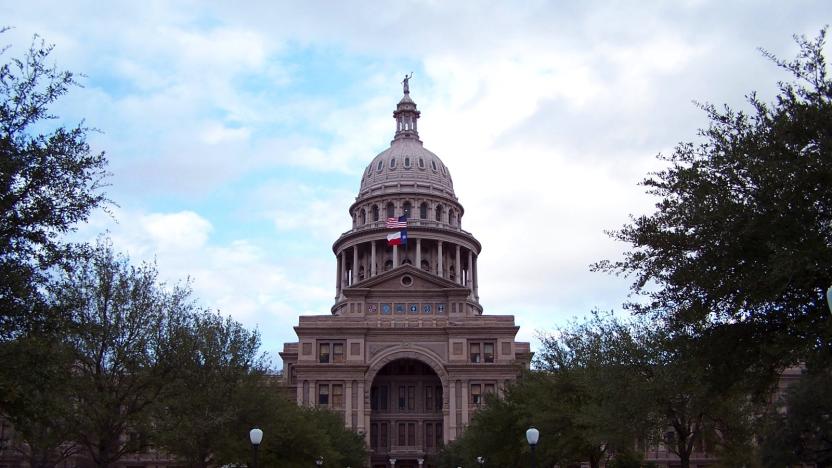
Texas court rules 2015 revenge porn law is unconstitutional
Revenge porn is getting attention across the nation as state, regional and even federal lawmakers wrestle with how to deal with the practice of posting private, intimate photos of people without their permission. A 2015 Texas law that made revenge porn a misdemeanor with up to a year of jail time and a $4,000 fine was struck down by the 12th Court of Appeals as violating the First Amendment. The court also dropped a charge against Jordan Bartlett Jones, who challenged the law after he was denied a Writ of Habeas Corpus last year.
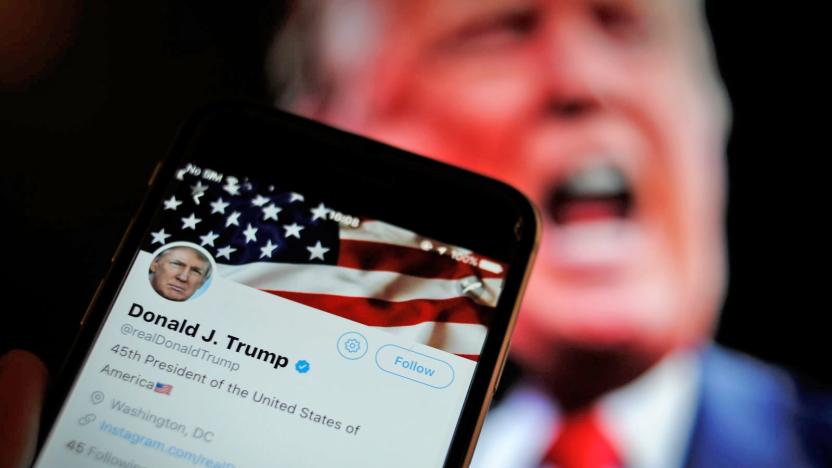
Judge suggests Trump should mute followers instead of block them
Last year, the Knight First Amendment Institute at Columbia University sued Donald Trump, then White House Press Secretary Sean Spicer and White House Director of Social Media Daniel Scavino claiming that the president's blocking of individuals on Twitter is a violation of their First Amendment rights. The group argues that Trump's account constitutes a public forum and therefore, blocking US citizens from accessing it is unconstitutional.
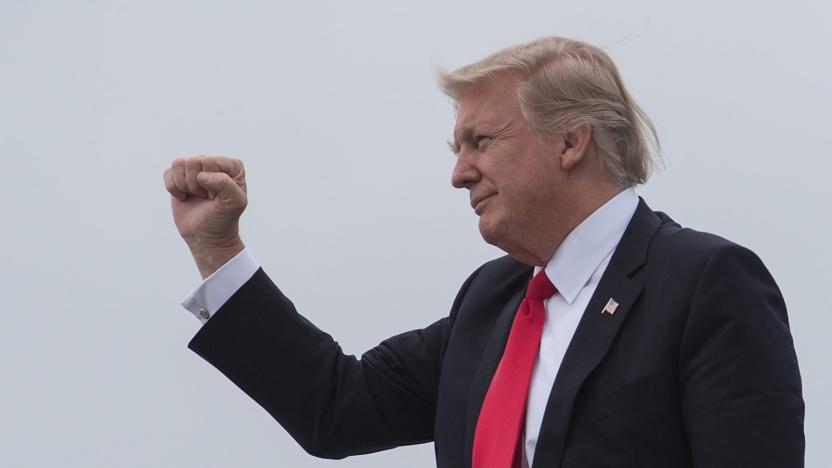
White House: Yes, the president blocks critics on Twitter
Yes, the president does block critics on Twitter. That's what the latest legal filing related to President Trump's Twitter activities has revealed. If you'll recall, seven individuals filed a lawsuit claiming Trump is violating the First Amendment by barring their access to his account. Now, the Knight First Amendment Institute, a Columbia University group helping the plaintiffs, has announced that both sides have filed a formal legal acknowledgement in which they agree upon a set of facts. In that filing, the White House said it will not contest the plaintiffs' claims.

First Amendment suit halts anti-'Pokémon Go' law
A legal battle against AR games like Pokémon Go has been brewing in Wisconsin and this week, the games scored a win. In February, Milwaukee County introduced a new law that required AR game makers to get a permit before their games could be designed for use in the county's parks. The move came after the parks saw large increases in traffic after the release of Pokémon Go last year.
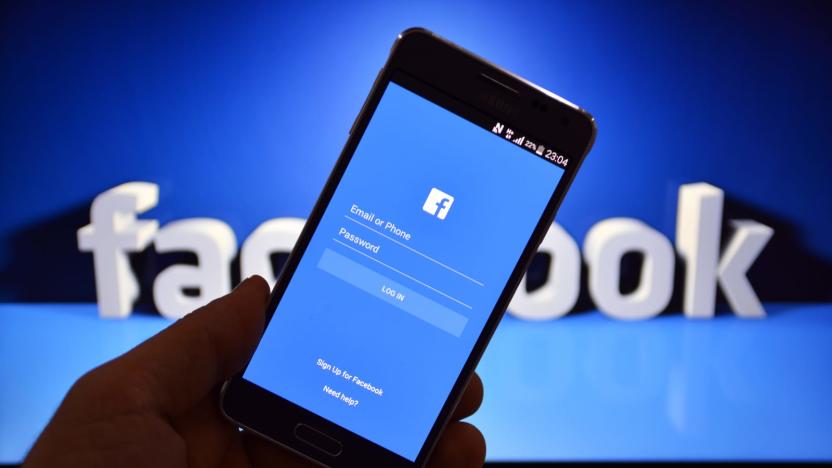
Facebook is fighting the US on user data requests
Facebook is challenging the government over data searches that are possibly related to protests that happened during Donald Trump's inauguration. According to information dug up by Buzzfeed, Facebook received warrants from prosecutors to search three accounts. Those were accompanied by non-disclosure orders preventing it from telling the affected users about any investigation. The gag orders may have come about because in February, the social network warned some protesters that police were digging around in their Facebook accounts.

Supreme Court rules sex offenders can use social networks
It's understandable why governments would want to keep sex offenders away from social networks -- you don't want predators messaging their potential targets. Is an outright ban taking things a step too far, though? The US Supreme Court thinks so. As part of a ruling in a case where a college student preyed on an underage girl, the court has struck down a North Carolina law preventing sex offenders from visiting social internet sites that children might frequent. Simply speaking, the law was so broad that it violated free speech rights, disconnecting offenders from modern life.

Lawyers claim Trump can't block his critics on Twitter
While we withhold the right to moderate and maintain standards of discussion in our comments because they are a private space, does the President of the United States have a different standard to meet? The Knight First Amendment Institute at Columbia University believes so and sent Donald Trump a letter on behalf of Twitter users that have been blocked by his @realDonaldTrump account. The Wall Street Journal posted the text of the letter (PDF), which argues that, as President, operates as a "designated public forum" similar to a city council or school board meeting. As such, their argument goes, blocking users who have mocked or criticized the president violates their First Amendment rights. The letter did not directly state that further legal action could follow, but certainly implied it's possible. Bloomberg reports that White House spokesman Sean Spicer confirmed in a press conference that Trump's tweets should be considered official statements. So far there is no comment on the letter, and the users remain blocked.

Reports: US is preparing charges against Wikileaks' Assange
United States authorities have prepared charges for the arrest of Wikileaks founder Julian Assange, CNN reports. Assange has been hiding out in the Embassy of Ecuador in London since 2012, fleeing allegations of rape in Sweden and espionage charges in the US. This makes him difficult to reach, regardless of a formal charge -- unless Ecuador plans to kick him out of its embassy after a five-year stay.
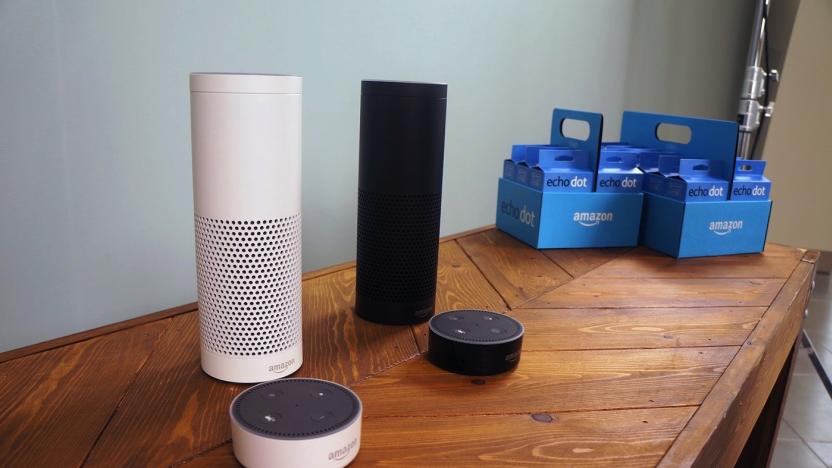
Amazon hands over Alexa data after murder suspect gives the okay
Amazon has agreed to hand over Alexa data to prosecutors in a murder trial after the defendant, an Echo owner, gave permission. The company had initially refused to do so, saying it "seeks to protect the privacy rights of its customers" and that Alexa's questions and answers are protected by the first amendment. The case involves Arkansas resident James Bates, who is charged with the murder of a man found dead in his hot tub in November, 2015.

Amazon refuses to hand over Alexa info for murder investigation
Amazon continues to resist law enforcement's demands to hand over the audio recordings for an Echo involved in an Arkansas murder investigation. The tech titan has filed a motion to throw out a search warrant from prosecutors, arguing that both the users' voice commands and Alexa's replies are protected by the First Amendment. As such, the demand must be subjected to a "heightened standard" -- prosecutors must prove that they can't find the information elsewhere and must demonstrate a compelling need for the recordings.

How artificial intelligence can be corrupted to repress free speech
The internet was supposed to become an overwhelming democratizing force against illiberal administrations. It didn't. It was supposed to open repressed citizens' eyes, expose them to new democratic ideals and help them rise up against their authoritarian governments in declaring their basic human rights. It hasn't. It was supposed to be inherently resistant to centralized control. It isn't.
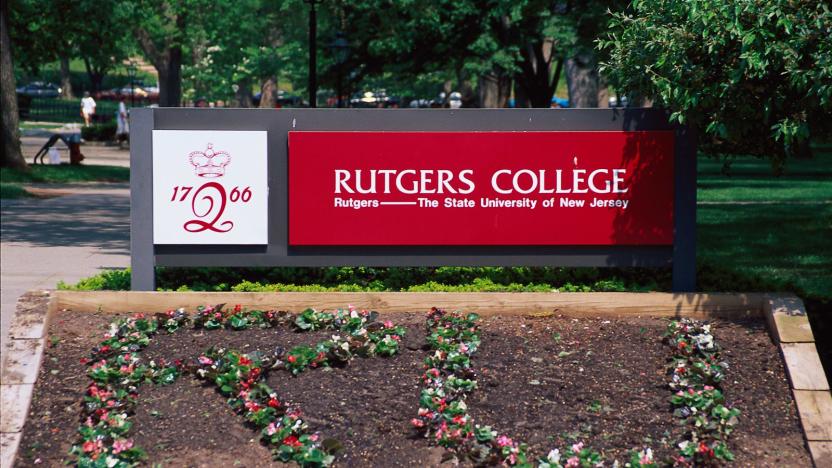
Rutgers professor forced to take psych evaluation over tweets
What you say online has consequences. An adjunct professor from Rutgers learned that this week after he was detained by police and forced to take a psych evaluation after asking his class a few hyperbolic questions and later posting versions of them to Twitter. According to the New York Daily News, last Wednesday Kevin Allred asked his class if conservatives would care as much about the Second Amendment if guns killed more white people. "In class, we talked about flag burning generally as a form of protest, and what does the flag mean to different people," Allred told the publication.
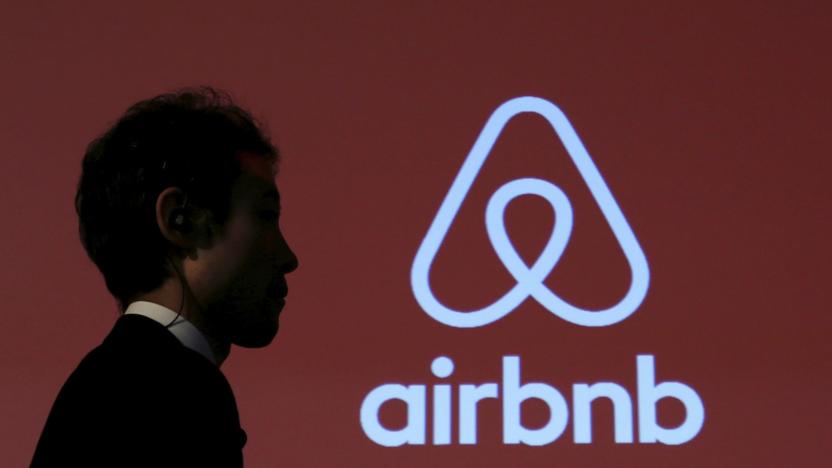
San Francisco judge denies Airbnb's lawsuit against the city
When Airbnb sued San Francisco in June, claiming that people listing their apartments for rent were responsible for any wrongdoing (like failing to register as a business), city officials were quick to respond. At the time, they said that the rental outfit was reading the Communications Decency Act (CDA) how it wanted to. As such, a city judge has rejected the suit, according to Reuters. Presiding judge James Donato said that the CDA does not "regulate what can or cannot be said or posted in the listings."

Kanye West, incest and Twitter's First Amendment conundrum
NSFW Warning: This story may contain links to and descriptions or images of explicit sexual acts. On Nov. 11th, 2014, Kim Kardashian's ass broke the internet. Her iconic posterior, photographed by Jean-Paul Goude, graced the cover of Paper magazine and became an instant meme. Like a pillow-y flesh bomb, Kardashian's butt exploded into a firestorm of praise and disgust. The New York Times warned of the perils of a massive ass, while social networks and daytime talk shows teemed with hot takes about the young mother's butt.

Court claims Google lost right to pull site from search results
You'd think that Google's search results would be protected in the US by free speech rights. Google gets to say what what shows up on its own site, right? However, one Florida court thinks differently. It recently determined that Google wasn't protected by the Constitution's First Amendment when it pulled search engine optimization firm E-ventures' website from its index. Google supposedly crossed the line when it claimed E-ventures was violating its policies by posting "pure spam" -- this wasn't strictly true, the court argued, and was driven by "anti-competitive motives" rather than self-expression.

Court rules Google can arrange search results any way it wants
With the First Amendment behind it, Google is now free to put search results in whatever order it wants, according to a recent ruling by a US court in San Francisco. The company has been fighting to earn this right for years, but it wasn't until last week that a judge in the Bay Area decided to grant the search giant such a thing, citing freedom of speech as the main influencer in the decision. It all started back when a site known as CoastNews filed a lawsuit arguing that Google was knowingly lowering its rankings in search results; the tech giant supposedly viewed it like a competitor and, thus, didn't want it to succeed. Shortly thereafter, Google quickly answered with an anti-SLAPP motion, which is often used by defendants to guard against litigation that would deter free speech.

Federal domain seizure raises new concerns over online censorship
It's been a little more than a year since the US government began seizing domains of music blogs, torrent meta-trackers and sports streaming sites. The copyright infringement investigation, led by US Immigrations and Customs Enforcement (ICE) authorities, quickly raised eyebrows among many free speech and civil rights advocates, fueling a handful of legal challenges. Few are more compelling, or frightening than a case involving Dajaz1.com. As TechDirt reports, the popular hip-hop blog has been at the epicenter of a sinuous and seemingly dystopian dispute with the feds -- one that underscores the heightening controversy surrounding federal web regulation, and blurs the constitutional divide between free speech and intellectual property protection. Dajaz1 was initially seized under the 2008 Pro IP Act, on the strength of an affidavit that cited several published songs as evidence of copyright infringement. As it turns out, ,any of these songs were actually provided by their copyright holders themselves, but that didn't stop the government from seizing the URL anyway, and plastering a warning all over its homepage. Typically, this kind of action would be the first phase of a two-step process. Once a property is seized, US law dictates that the government has 60 days to notify its owner, who can then choose to file a request for its return. If the suspect chooses to file this request within a 35-day window, the feds must then undertake a so-called forfeiture process within 90 days. Failure to do so would require the government to return the property to its rightful owner. But that's not exactly how things played out in the case of Dajaz1. For more details on the saga, head past the break.

U.S. government to fund studies on video game's effects
On Friday, The Children and Media Research and Advancement Act (CAMRA) was passed by the U.S. Senate. The bi-partisan act introduced, in part, by Hillary Clinton (D-NY) and First Amendment hater Joseph Lieberman (D, sometimes R, but currently I -CT), is designed to research the effects of media on children.The research will be headed by the Centers for Disease Control and Prevention and, if the study finds that video games do in-fact harm the children, the government will be free to impose its will on the industry.One of the major roadblocks to imposing legislation on the video games industry is that every superior court judge that's dealt with the issue has stated that games are protected under the First Amendment and, furthermore, that there is no scientific proof video games are harmful. By proving the latter, these pols hope to overcome the former.(Queue up Night on Bald Mountain from Disney's Fantasia)[Via Next-Gen.biz]













